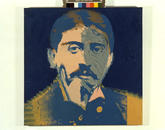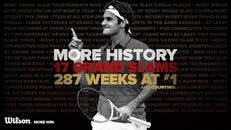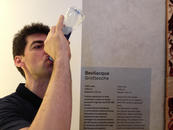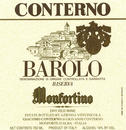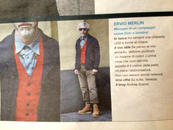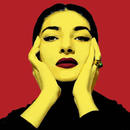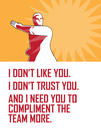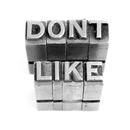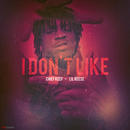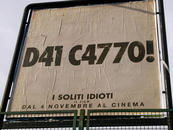Wise up!
Among the thousands of letters she received during her spectacular career, Maria Callas kept only those that expressed strong disagreement with her as a person, her voice, and her art (letters of praise she read indifferently and then tossed them out). Surprisingly there are numerous letters characterized by verbal violence, peppered with insults. More that one would expect. Many of the people I know consider Johann Sebastian Bach a "repetitive brain- driller"; before being re-evaluated in the Romantic era, he was almost unanimously considered, for almost a century, a plethoric and complicated craftsman. I've known people who considered Federer at the height of his career "a boring and prissy tennis player". Several times I've heard people refer to the best Barolos as "undrinkable”, unnecessarily complicated. A few weeks ago in the Sunday edition of Il Sole 24 Ore there was an article written by a well-known philosopher, in which Emanuele Severino was described as a senile, a case for asylum. Proust was forced to publish at his own expense the first book of Recherche after suffering a series of refusals from the major publishing houses in Paris. I could go on citing many other names that I consider untouchable in various fields of the humanities, not only artistic; people who instead have been quietly criticized and sometimes even mocked or insulted. And beyond my personal preference, this phenomena affects even more popular names. I could cite numerous example, but will limit myself to a few, literary name: Stephen King, systematically rejected by the publishing world from '67 to '73, and J. K. Rowling, author of Harry Potter, the biggest best seller of all time, which became such only after being rejected by publishers, eight times to be exact.
Every time someone criticizes my work, I console myself by thinking of the aforementioned geniuses: misunderstood, broken, and even mocked... well, given that I am a nobody, who am I to not withstand, all the more, negative criticism and continue to move forward with critical serenity. The temptation, when in a dispute, would in fact always the same, in the best case: flaring up and reacting rationally, justifying my choices and their relative actions, explaining certain formal, aesthetic and content-related decisions. To no avail, because the denial is almost always bound to the sterile "I don’t like it,” which can’t be debated (in terms of rational motivation).
As a young man I would get involved in verbal forays, trying to justify everything to the idiots who said "I don’t like it." I attempted to expose their reasoning behind the statement. I used the arguments of experts able to find a solution for every problem related to my field. With age, however, it has become increasingly clear that much of our blessed work is based not on measurable entities, but the thin, marginal, arbitrary and therefore incontestable opinions. So nowadays I fight to defend my ideas a lot less than in the past, regardless of their presumed validity just because over time I was able to understand the nature of this “presumption of validity”. It is precisely a presumption and nothing more.
As George Steiner teaches us, all that concerns the evaluative judgment in the context of aesthetics (and personal taste - and much of our work falls into this umbrella) is under the sign of relativity, arbitrariness. You can say everything about everything. If someone declares that Shakespeare's King Lear is "unworthy of serious criticism" (Tolstoy), or that Mozart composed only platitudes and that Callas was a bitch, Bach a brain-driller, etc..., their statements are absolutely irrefutable. Their falsity can’t be proven neither with formal arguments (logical) or with regard to their existential substance. The aesthetic philosophies and critical theories can only be more or less convincing descriptions, more or less general, more or less coherent paths that lead to this or that preference. The difference between the judgment of an expert in the field and that of an illiterate or obtuse fool is in the wealth of implicit or explicit references, and the clarity and rhetorical force of the expression. But this difference can’t be proven scientifically or logically. It is impossible to declare that any statement in the aesthetic field is correct or incorrect. The only appropriate response is personal assent or dissent.
This strong instability of judgment is therefore not an insignificant part of our work and as such should be accepted. Always and everywhere, especially in the face of unwarranted criticism, due to the very fact that they are almost always unjustified - and every time starting a dispute in the long run would only make us doubt ourselves, undermining a priori the very quality of out work, as well as our own lives. So I avoid getting too excited about successes and letting criticism bring me down. Both the positive and negative comments seem to me “accidental and suspicious” because they lack justification, counter evidence, or any form of measurability (of course, that is, before our work is “measured” by the market). I accept one and the other with equal disenchantment. The only real success is the belief that I did my best, having done everything possible with the tools at my disposal. And doing my best means first of all try studying and learning something every day: this is the only way to measure our deontological ethics, our professional stature.
03/09/2013 Filippo Maglione




